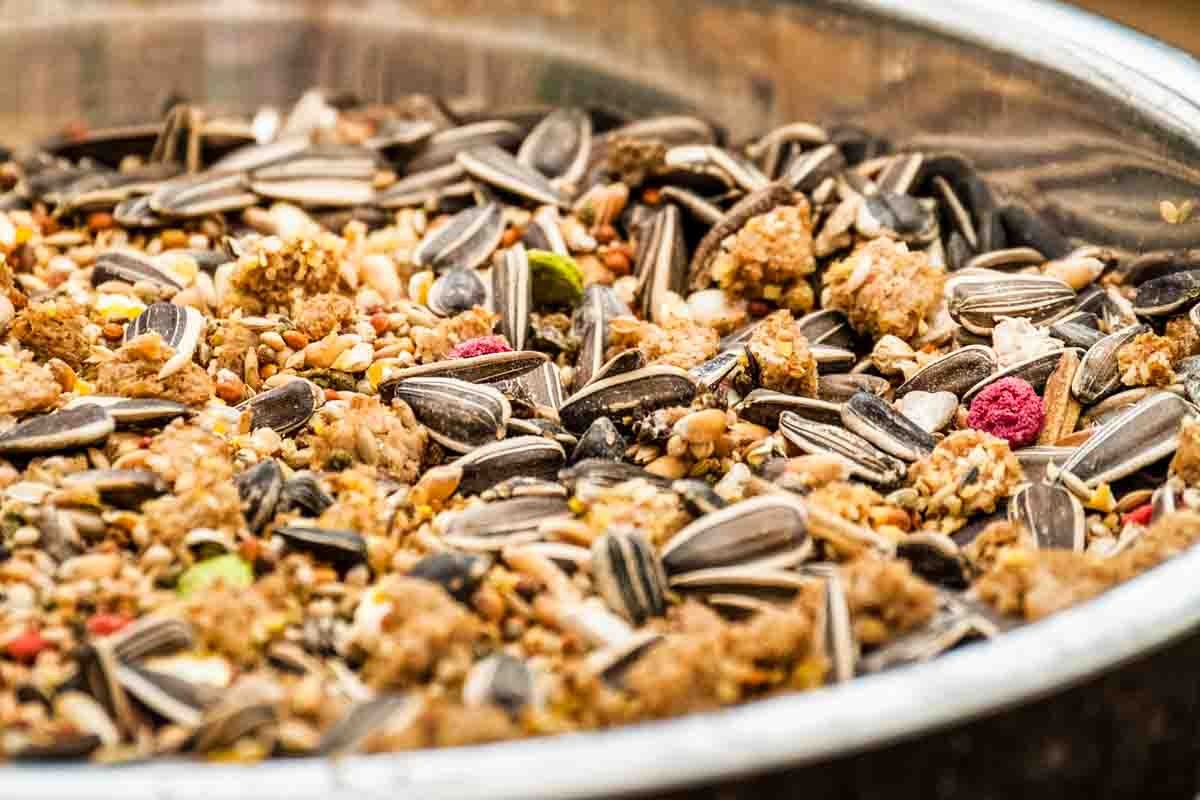
Dogs' tendency to consume bird seed is a common concern among pet owners and bird enthusiasts. While fresh bird seed generally poses minimal immediate risks when consumed in small quantities, prolonged or excessive consumption can lead to serious health complications. The primary dangers stem from moldy seeds containing aflatoxins that can cause liver damage, potential intestinal blockages, and exposure to harmful bacteria through contaminated seeds and bird droppings. Additionally, certain bird seed mixes may contain ingredients toxic to dogs, such as raisins or specific nuts. Understanding these risks is crucial for implementing appropriate preventive measures and ensuring pet safety.
Can Dogs Eat Bird Seed
Health Risks of Bird Seed Consumption
Bird seed consumption can pose serious health risks to dogs according to veterinary experts. The main concerns include:
- Aflatoxin poisoning from moldy seeds causing liver damage
- Intestinal blockages and bloat requiring emergency surgery
- Salmonella infection from contaminated seeds or bird droppings
- Gastrointestinal upset from overconsumption
Identifying Toxic Bird Seed Ingredients
While some bird seed ingredients are safe, others can be dangerous. According to animal health specialists, dog owners should check bird seed mixes for:
- Raisins/sultanas - Known to cause kidney failure
- Moldy or damp seeds - Can contain harmful mycotoxins
- Macadamia nuts - Toxic to dogs
- Old or spoiled seeds - May harbor dangerous bacteria
Is Bird Seed Harmful to Dogs?
Immediate Health Impacts
While the previous sections covered long-term health risks, immediate symptoms after consuming bird seed require attention. Key indicators include:
- Vomiting and diarrhea within hours of ingestion
- Visible stomach enlargement and pain
- Excessive drooling and retching
- Loss of appetite and lethargy
Creating Safe Zones
Beyond the previously discussed prevention methods, additional protective measures include:
- Installing platform feeders at measured heights above dog's reach
- Designating separate play areas away from feeders
- Using pet-friendly seed blends free of toxic ingredients
- Providing distraction toys during outdoor time
- Training with positive reinforcement techniques
- Installing physical barriers around feeding zones
Can Dogs Eat Bird Seed
Safe Bird Seed Components
While previous sections covered toxic ingredients, certain bird seed components are generally safe for dogs in moderation:
- Sunflower seeds
- Safflower seeds
- Sesame seeds
- Flax seeds
- Chia seeds
- Pumpkin seeds
- Shelled peanuts (if no allergies)
Understanding Dog Behavior
Beyond health impacts discussed earlier, dogs may eat bird seed due to several underlying causes:
- Hunger and nutritional deficiencies
- Curiosity and boredom
- Anxiety or stress
- Dental problems
- Pica (eating non-food items)
- Coprophagia (eating feces)
- Allergies leading to unusual cravings
- Learned habitual behavior
Understanding these motivations helps develop targeted prevention strategies beyond just restricting access to feeders.
Conclusion
While some bird seed components like sunflower and pumpkin seeds are generally safe for dogs in moderation, bird seed consumption overall poses significant health risks that make it inadvisable for dogs to eat. The key dangers include aflatoxin poisoning from moldy seeds, intestinal blockages requiring surgery, salmonella infection, and severe reactions to toxic ingredients like raisins and macadamia nuts. Dogs may be drawn to bird seed for various reasons including hunger, boredom, anxiety, or underlying health issues.
Given these risks, prevention is crucial through measures like installing elevated feeders, creating separate play areas, and using pet-safe seed blends. Dog owners should monitor their pets for symptoms like vomiting, stomach pain, and lethargy if bird seed ingestion occurs. Understanding both the health hazards and behavioral motivations behind seed consumption allows for developing comprehensive strategies to keep dogs safe while still maintaining bird feeding activities.